Interview with Zuckerberg: What will happen to Facebook in the next decade?
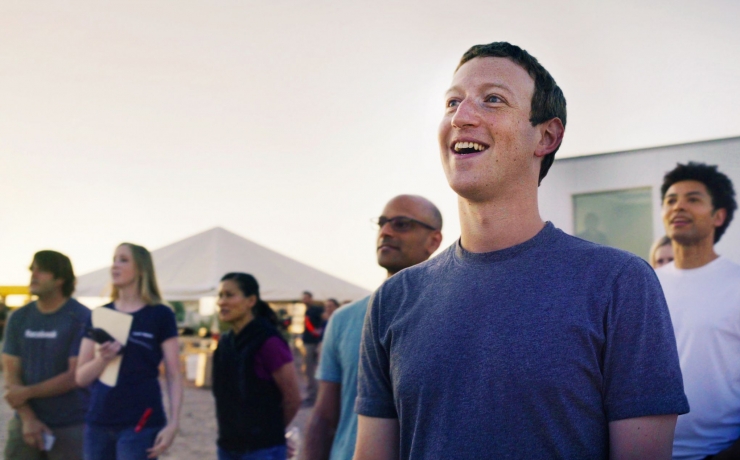
This article was compiled from TheVerge.
Zuckerberg plans to bring the Internet to every corner of the globe in the next decade.
Regardless of the angle of evaluation, Facebook has been very successful in recent years: more than 1.65 billion monthly active users built the world's largest social empire. The rapid expansion of their advertising business has far exceeded the expectations of a number of analysts and left behind their old rivals. In April of this year, CEO Zuckerberg developed an ambitious plan. This program covering the areas of virtual reality, artificial intelligence, and computer development will be the focus of Facebook's work in the next decade.
Recently, in Zuckerberg's live broadcasts and interviews with various media, the most talked about is the global Internet connection. In August 2013, Facebook established the internet.org website. Sometimes, Facebook’s excessive attention to underdeveloped areas of the Internet has caused controversy. Since then, Facebook’s World Connect initiative has officially started. It generously disclosed its own blueprint and plans to help less-developed regions access the Internet and use advertising to earn a reasonable return.
Another notable research project for Facebook is the Aquila Solar Drone. Aquila can fly at an altitude of 60,000 feet (18.3 kilometers) and use laser beams to transmit data, allowing the millions of users below to access the Internet. If Facebook can really keep Aquila flying in the air for 90 days, it will reduce the cost of accessing the Internet in underdeveloped regions all over the world.
On the day of Aquilia's first successful flight, Facebook invited me to their headquarters in Menlo Park, San Francisco, to meet with Zuckerberg and discuss Facebook's next-generation products and services such as network access and drones. After all, connecting the world to high-speed networks is just the first step in Facebook’s huge ambitions and far from the end. Zuckerberg believes that only ubiquitous high-speed networks are in full swing, and artificial intelligence and virtual reality services are likely to be completed.
Facebook's employees talked with me about the company's next decade—we talked about the difficulties Facebook has with infrastructure, and the significance of virtual reality for Facebook.
But during the interview, Zuckerberg explained why he was so keen to connect the poor to the Internet. When I stepped out of the conference room, he stopped me and hoped that I would ask him why he spent so much time on Internet access. "Because the Internet has brought quite a lot of opportunities to people in less developed areas," he said. “Research shows that for every ten people connected to the Internet, one person gets out of poverty and one job is created. If you realize that nearly 4 billion people don’t have Internet service, you’ll find that What a great project that will greatly increase the average level of human life."
Zuckerberg added that although direct investment in education and health care is also necessary, "but I think that one thing has long been ignored by all, when you live in a poor town, there is nothing around School, then Internet learning will be one of your few good choices." He said, "Also, if you live in a place where doctors are not stationed with orthodox training and self-learning medical knowledge through the Internet, improving your health is also the best solution."
Zuckerberg and I conducted a 45-minute interview at the Facebook headquarters building, together with the company’s employees and public relations team. Here are the details of the interview, including the following eight main topics (click to jump):
World Connected Project
Aquila drone test flight
Terragraph Infrastructure Project
Free Basics lessons
Artificial Intelligence, and Zuckerberg's Robot Butler
The future of chat robots
Facebook's wild hope in the field of virtual reality
Challenges and opportunities in the field of augmented reality
1. World Connected ProjectQ: You put a lot of money into the network connection in the less developed areas. What do you think is the biggest challenge in this process?
A: There are now about 4 billion people without internet access. The main reason is that the infrastructure has not been built. Even if you have a smart device, there is no internet connection. But also the cost of the network is too high and many people cannot afford it. This is a good solution to reduce the cost of data traffic and reduce the use of traffic through compression algorithms and software optimization. Both of us are working hard. Facebook's application can be said to be the most frequently used application in the world, so we are trying our best to optimize the use of data and open-source our work so that other companies can enjoy the fruits of our labor. In terms of reducing data rates, we have launched the Telecom Infra Project project. Using the network infrastructure project we have designed can significantly reduce the operator's operating costs. Our design drawings can be obtained free of charge. When operators' operating costs are reduced, They can reduce data rates to attract more users.
There is also a big reason that hinders people from accessing the Internet, which is the lack of awareness of the Internet. Some people will not open data traffic services even if they have smart phones. If you ask them, "Why not go online?" They will say, "What is the use of the Internet? Why do you want to go online?" Our Free Basics project is designed to allow more people to experience the convenience of the Internet for free, so that they develop the habit of surfing the Internet.
Summary: The underdeveloped network infrastructure, the high cost of Internet access, and the lack of online awareness are the three main reasons why the rest of the world does not use the Internet. Our entire project is focused on solving these three issues.
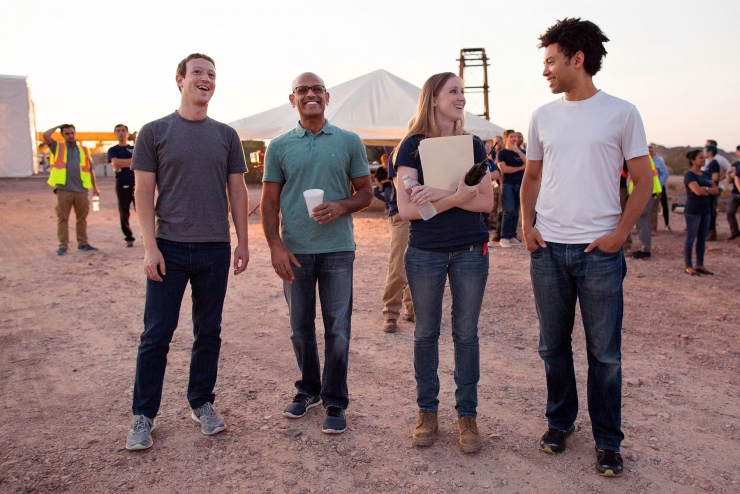
Q: On June 28, Aquila made its first test flight. You were also present at the time. What do you think?
A: At least, it works, right? What I mean is that when you try for the first time, things often happen. My presence made the project team nervous. I think this is an important milestone in the development of the company, so I have to be present in person.
It is relatively slow to fly, but this is what we deliberately. When people design a plane, most of the time, the purpose of the design is to transport people or items from one place to another. Therefore, there is no benefit to the aircraft flying slowly. However, if your goal is to stay in the air for a longer period of time, and you want the less energy the aircraft consumes, the better. This means that you must fly as slowly as possible without falling from the air.
Q: In the next few years, what kind of progress do you hope the Aquila project will achieve?
A: The manufacturing cost of drones will be reduced. I think that on a certain day in the outskirts of the city where people live, there will be thousands of solar drones flying in the air, and the Internet will become more popular and cheaper. This is an early milestone, but it is also an important milestone. We are not airlines, but I feel that we are becoming an airline.
Q: How do you send so many planes to heaven?
A: We don't intend to build a network. What we want to do is prove the feasibility of the concept. Then we can find a way to authorize this technology for use by others, or provide it to everyone for free. Since then, telecommunications companies, governments, non-profits Organizations, disaster relief agencies can provide these technologies for everyone. This is my vision.
3. Terragraph Infrastructure ProjectQ: Facebook also launched the Terragraph project this year, which aims to use millimeter-wave technology to provide benefits for local cellular networks. Later this year, Terragraph will be used in San Jose, California. What kind of effect do you expect it to have?
A: I think that 5G and Terragraph are very important for increasing the bandwidth and reducing the delay. If you want to broadcast live, no matter where you are, you want to be able to broadcast live and interact with others at any time, which is very important. We attach great importance to VR, it can give people a sense of immersive, and to do this, the network must be able to instantly download a lot of information, there can be no delay. Think about it, the best doctors in the world can perform surgery anywhere. We can use micro-robots to let doctors control them, but this puts high demands on the bandwidth and latency of the network. In addition, with the Terragraph later, the bandwidth is greatly increased. At that time, you no longer have to worry about the network at the concert site being too slow to send photos and videos.
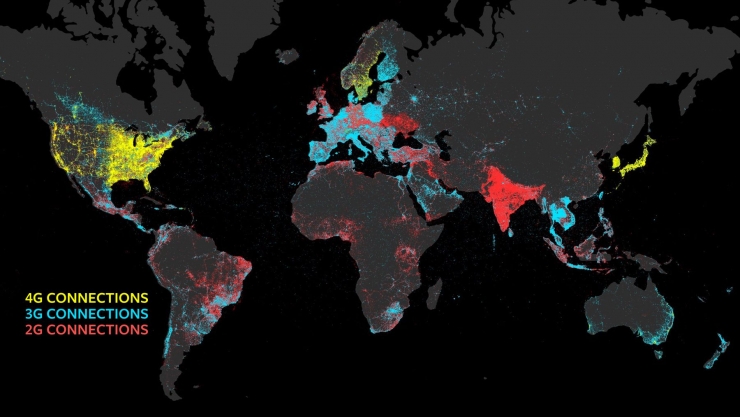
Q: You mentioned the Free Basics project. I think everything we discuss today needs to form a partnership with the government. What lessons did you learn about the debate that Free Basics has caused in network neutrality?
A: Yes, all these things involve partnerships with the industry, telecom operators, governments, and non-profit organizations. Free Basics has been put into use in 42 countries, but we have also encountered setbacks in several countries, and India is certainly the biggest one. The country’s 1 billion people have not yet accessed the Internet. We have learned from setbacks the lessons we have learned from dealing with governments and regulators. Free Basics will continue to be launched elsewhere in the world. I hope we will have the opportunity to return to India and re-launch this service.
However, partnerships are also important for everything else. Solar unmanned aircraft is similar to the problem of driverless cars in many aspects. I think we must work out a framework.
5. Artificial Intelligence, and Zuckerberg's Robot ButlerQ: Talk about artificial intelligence. Earlier this year, you wrote on the Internet that you were planning to do an artificial intelligence program to manage everything in your home. How is this project going? There is, how does it change your understanding of artificial intelligence?
A: Well, it's good. The plan went smoothly. I will soon complete a demo version. I can use him to control everything at home, including lights, temperature, doors, etc. I can even bake bread for me.
Q: Very curious, how did he help you toast?
A: Well, I think the key issue is not how to bake bread, because it is not difficult to solve - connect the bread machine to the Internet and control the switch on the web page. The real problem is to let him decide when to help me toast. Every morning, after I finish processing my unread email, I will go out for a run. From time to time, I need a meeting. So, the toaster must know where I am and how it is, according to these decisions when toast for me, and notify me when toasting bread. This requires a considerable amount of work, but fortunately most of the work I completed.
One of the interesting things about this project is that my project makes extensive use of various artificial intelligence tools that Facebook has already open-sourced—such as visual recognition, image search, speech recognition, and semantic analysis. The framework of the robot used open source works by Messenger (Facebook's instant messaging tool) team and the degree of completion was very high. If I didn't do this home AI project, I wouldn't have the opportunity to go deeper into the code level to understand the latest achievements of my company members, and now I've done it. Although I occasionally asked them stupid questions, I also had more in-depth communication with the company's engineers and a deeper understanding of the entire project. For the family, I think the biggest significance of this project is to grab control of the air-conditioning temperature in the hands of Priscilla (Zach Berg's wife). (the audience laughs)
At the Facebook annual developer conference F8, you mentioned that artificial intelligence systems are more precise than humans in terms of sense—visual, auditory, and semantic understanding. Now, Facebook can already describe the picture content and translate the text I send into multiple languages ​​at once. What dimensions do you think artificial intelligence can improve in ten years from now? What aspects of improvement are you most excited about?
I think artificial intelligence will make a breakthrough in two major types. One is pattern recognition, and the other is broader. It is higher-level intelligence and autonomous learning. Frankly, we know almost nothing about the latter. The artificial intelligence that we are currently making is the superposition of the former. In today’s society, the perception of artificial intelligence falls into two categories: Optimists and Pessimists. I do not think that this type of artificial intelligence based on pattern recognition can cause any survival threat to human beings. But this does not mean that pattern recognition will not play a big role. On the contrary, in the near future, pattern recognition type artificial intelligence will bring great convenience to the blind group, as well as deaf and mute people, and machines will help them to Speech is converted to text. There are also driverless cars and drones, which will improve the quality of human life in all dimensions.
Here is one thing that is important. We must clearly understand that artificial intelligence is not black magic but mathematics and statistics, right? It will not abruptly deviate from the barbarous growth of human beings. These are just technical means to serve humanity. What I was most excited about was the continuous efforts of the team to make the whole system more and more outstanding. We found an algorithm for neural network convergence on the 37th floor, and shared the technical achievements through the papers. world. These results can make driverless cars safer and automate more accurate diagnosis of illnesses. From this point of view, we are still in the first mode, which is the initial stage of artificial intelligence, so there is no need for excessive panic.
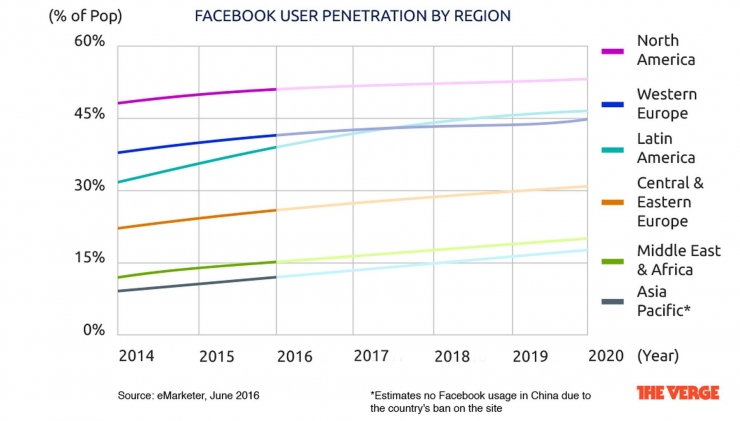
Q: The chat robot announced on F8 is finally put into practical use. However, many people, including myself, believe that the interaction efficiency of chat bots is lower than traditional interaction methods. What do you think?
A: This is a problem. We need to return to why we do chat bots. Every month, there are millions of people on Facebook’s corporate page asking questions related to the company. Therefore, companies are also paying more and more attention to their presence on Facebook pages. If you want to contact a company, it is a good idea to send them a message on Facebook. But you can also imagine that waiting for the company to respond may take several hours, sometimes even a few days. So, one of our first ideas was to see if we could develop an AI system that could predict how certain types of problems should be answered based on how companies respond to customers. We have found that this is actually achievable in many cases. When the company’s response speeds up, users will send more messages to them. So we began to consider whether we could turn the company’s artificial reply into an automatic reply. As a result, we greatly accelerated the speed of reply.
Is there some custom UI that is better than the chat interface? Maybe sometimes it is like this. I don't think the chat interface is the best form of interaction in all situations, but I think it's 10 times to 100 times better than the way people interact with businesses today.
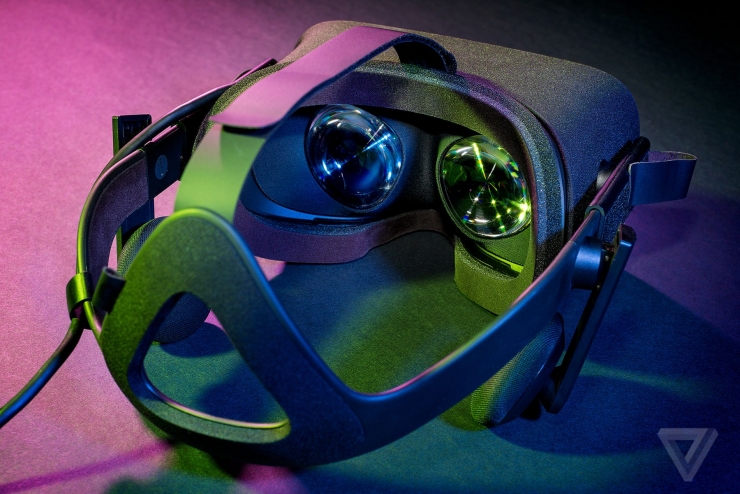
Q: Can you talk about what VR technology means? Especially in the case of ultra-high resolution and low latency.
A: The importance of VR is reflected in several aspects. First, our mission is to let everyone share their experiences as truly as possible and help people understand what is happening around them. From the beginning of the text 10 to 15 years ago, to the image and video, the development of technology has increased the richness of experience sharing. Now, video is starting to become the main way people interact and consume content online, or is one of the main ways.
But it's not just that -- our experience is not video, not a small 2D picture, but a 3D world. You want to be able to capture this kind of experience and want to be able to portray it in a digital way, whether it's in the game you've created or the video you've captured. I think this is just the next stage in our expression and experience of the world, a logical natural development.
Another big trend for VR is that every 10 to 15 years, a new mainstream computer paradigm will emerge. This is usually defined by their interface and how they interact with the world. Think about the 1980s when there were some large servers. If you didn't have a special degree, it was difficult to use them. In the 1990s, clunky desktop computers appeared, but their efficiency was high enough, so people mainly used them as a productivity tool. Basically the mouse is used. Then we have the web, and it's easier to transfer data across multiple different computers. And then we have a cell phone. In fact, the mobile phone is the first mainstream computing platform. People really like mobile phones, but this is not the end of development. There will be something else later.
8. Opportunities and Challenges in Augmented Reality
Q: You talked a lot about VR plans, but you haven't mentioned AR yet. What role do you want Facebook to play in promoting AR? Also, Facebook and OCulus have launched VR devices. Will they also consider launching AR hardware devices?
A: Of course we are doing research on AR. We first introduced VR to the market because its technology is relatively mature and people can buy good VR devices at a reasonable price. Moreover, there are more and more people using VR every day. It has many very practical application scenarios. Of course, using a smart phone as a VR display and processing module is also an important reason for its popularity.
And AR, there are many basic technical issues that need to be overcome, but I am optimistic about this, and I believe we will solve these problems soon. In the next five to ten years, AR's development will reach the current level of OCulus Rift. But no doubt, for now, VR is more likely to succeed, which is also the direction of our current efforts. Of course, we are also paying close attention to the development of AR.
Related Links:
In order to promote the global network, Facebook UAV Aquila completed its first test flight